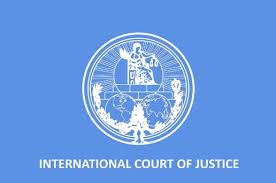Estrada Doctrine in International Law
📘 Estrada Doctrine
🔹 1. Definition
The Estrada Doctrine is a principle of non-intervention and non-judgment in international law. It holds that no state should judge the legitimacy or illegitimacy of another state's government, especially when a regime changes through revolution, coup, or other non-constitutional means.
Instead of recognizing or de-recognizing a government, a state should simply continue or suspend diplomatic relations without expressing approval or disapproval.
🔹 2. Origin
Named after: Genaro Estrada, Foreign Minister of Mexico
Proclaimed on: September 27, 1930
Context: Response to the practice of the United States and other countries of granting or withholding formal recognition to new governments based on how they came to power.
🔹 3. Key Principles
| Principle | Explanation |
|---|---|
| Non-intervention | States should not interfere in the internal affairs of others. |
| Sovereignty | Every state has the sovereign right to determine its own government. |
| Non-recognition policy | Refusal to issue formal recognition or non-recognition of new governments, as it implies judgment. |
| Diplomatic continuity | Mexico would maintain or break diplomatic ties based on interests, not ideology or regime change. |
🔹 4. Purpose
To uphold state sovereignty and equality in the international community.
To avoid endorsing or condemning governments based on political ideology or the means by which they came to power.
To maintain a neutral and consistent foreign policy.
🔹 5. Application and Impact
Adopted by Mexico as official policy throughout much of the 20th century.
Used to maintain neutrality during political crises and revolutions in Latin America.
The doctrine was widely respected in Latin America, especially in contrast to U.S. interventionist policies like the Roosevelt or Truman doctrines.
It promoted peaceful coexistence and respect for internal sovereignty.
🔹 6. Comparison: Estrada Doctrine vs Tobar Doctrine
| Feature | Estrada Doctrine | Tobar Doctrine |
|---|---|---|
| Recognition Policy | No recognition or de-recognition of governments | Recognition only for governments formed constitutionally |
| Judgment of Legitimacy | Avoids judging legitimacy | Judges legitimacy based on method of assumption of power |
| Origin | Mexico (1930) | Ecuador (1907), promoted by Carlos Tobar |
🔹 7. Criticism
Some argue it allows undemocratic or oppressive regimes to stay unchallenged.
Seen by some as a form of passive diplomacy.
Critics suggest it can weaken international support for democratic governance.
🔹 8. Modern Relevance
While not universally adopted, the Estrada Doctrine continues to influence diplomatic approaches that prioritize non-intervention and sovereign equality.
It’s seen as a response to power politics and interventionism, particularly in the Global South.
✅ Summary
| Aspect | Description |
|---|---|
| What is it? | Policy of non-recognition and non-judgment of governments |
| Origin | Mexico, 1930 (by Genaro Estrada) |
| Principle | Sovereignty, non-intervention, diplomatic neutrality |
| Applied by | Mainly Mexico; admired in Latin America |
| Contrast with | Tobar Doctrine (which judged governments' legitimacy) |












comments